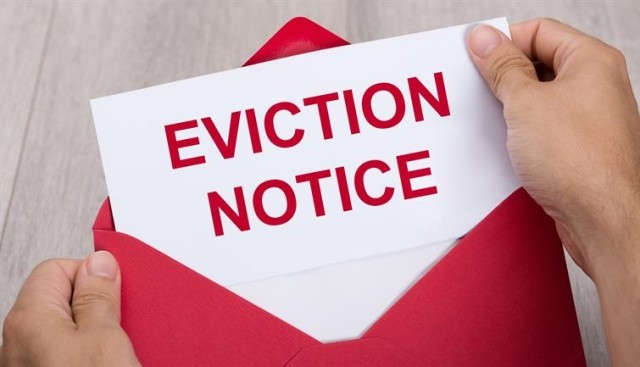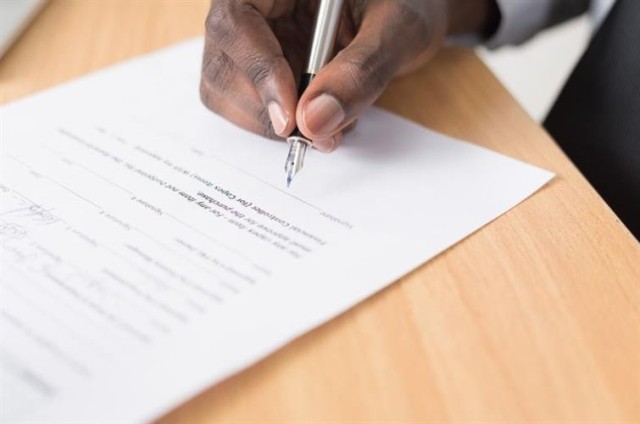Applying for an apartment is an exciting time that comes with navigating through paperwork to get into your new place. One of the most important documents you’ll need before being approved is proof of income. Income verification involves providing the landlord with documents that prove your income is equal to or more than the amount required.
Providing proof of income is straightforward for many, but not everyone holds a traditional job. Whether you're self-employed, retired, or currently unemployed, you can still demonstrate your ability to rent a home. Here are some simple ways you can prove your income and get one step closer to securing your new apartment.
Why do apartments ask for proof of income?
What proof of income documents are needed to rent an apartment?
Proof of income options for retirees or unemployed renters
Proof of income for self-employed renters
Why do apartments ask for proof of income?
We know that proof of income are documents you provide to a landlord to prove your wages, but why do they need this for a rental application? Essentially, the landlord wants to know whether you’re going to be a reliable tenant who will pay rent on time each month. Landlords usually require renters to make more than three times their monthly rent, meaning no more than 30 percent of your gross annual income should be used for rent.
If you’re living with roommates, the sum of your wages should be 30 percent of the total rent amount. Normally, you’ll need at least two documents that prove your income, but that is up to your landlord. Some places are stricter than others, but this is just a precaution on their part to avoid fraud.
Normally, you’ll need at least two documents that prove your income, but the decision is up to the landlord. Providing proof of income documents may seem a bit invasive, but doing so will help you (and the landlord) know which apartments you can reasonably afford. While some cities have a higher cost of living than others, it’s generally recommended to stay within the 30 percent range when renting any apartment.
What proof of income documents are needed to rent an apartment?
If you are employed by a company and work traditional hours, you have many ways to easily provide landlords with your income verification.
Pay stubs
Pay stubs are used most often for people who earn consistent pay. A pay stub usually reflects the hours worked, amount earned per-hour, year to date earned, tax deductions, insurance deductions, 401K deductions, etc. Normally, a landlord will request multiple paystubs to verify that your income is consistent. If you work on commission or make hourly wages and don’t have a steady schedule, pay stubs might not be the best option for you.
The previous year’s income tax return
Your tax return, typically IRS form 1040, provides a detailed summary of all the income you earned over the year, making it a reliable and accurate proof of earnings that landlords highly value. However, renters may find it challenging to locate this document or feel it’s too intrusive. Additionally, since it reflects last year’s income, it may not accurately represent your current financial situation if you’ve changed jobs.
Bank statements
Bank statements are a great option for employed renters as they can be paired with a paystub or used to represent salary for people who don’t have the same monthly income. A bank statement is a record of your bank account’s balance, deposits, and withdrawals. These give the landlord a gauge of your spending habits and income.
Proof of income letter
A proof of income letter, typically written by an employer, outlines your income and role at the company. This letter could also double as a letter of recommendation. Before asking your employer to write a letter, ask the landlord to outline exactly what is needed in the letter.
A written job offer
You can also use an official job offer letter as proof of income as long as it includes salary information. The offer letter might have to be paired with another document, but it’s at the discretion of the landlord. If your credit checks out, the offer letter might be enough proof.
Proof of Income Options for Retirees or Unemployed Renters
Being retired or currently unemployed doesn’t disqualify you from renting an apartment. Demonstrating consistent financial resources is key in showing that you will be a reliable tenant. Below are examples of documents that a landlord may consider.
Pension distribution statement
If you are receiving a pension, you can prove your monthly pension payments via your pension distribution statement. The drawback to this form is that it’s easily forged, so a landlord might require it to be paired with another document for verification.
Social security benefit verification letter
If you’re receiving social security, you can prove your income through a social security proof of income letter (also called a benefit verification letter), which may be downloaded from your online social security account.
Annuity statement
There are different types of annuities. For example, you can receive an annuity from an inheritance, or if you’re a retiree, you might have a contract with an insurance company to provide you with an annuity income during retirement. The annuity statement provides money balances and cash value. Contact your annuity representative for a statement if you need one.
Interest and dividend income statement
Interest income is money earned from interest made on savings accounts, while dividend income is money earned from stocks and mutual funds. If you received any amount of interest or dividends from an account, your financial institution(s) would have mailed you a 1099-INT or 1099-DIV, respectively. If the periodic earnings would cover your rent, this statement is an excellent option to use as proof of income.
Workers’ compensation letter
If you are currently earning workers’ compensation, you can use your award letter, typically issued by the insurance company or court awarding the compensation, as proof of income. The drawback here is similar to unemployment checks because the compensation has an end date, so the letter is best used for a short-term lease.
Unemployment compensation letter
If you’re receiving unemployment, your federal or state unemployment checks can be used as proof of income. The only drawback is that these checks normally have a stop date, so you’ll need a backup if your checks end before your lease does.
Proof of Income for Self-Employed Renters
If you’re self-employed and don’t have pay stubs or documents that provide accurate monthly earnings, don’t worry! There are several other documents you can provide to help show that you have a consistent income.
An income tax return
Tax returns were mentioned earlier, but it’s worth mentioning again, as they are the most accurate representation of what you earned during a certain year. Tax returns are also easily verifiable, so landlords appreciate them as proof of income.
Profit and loss statements
Profit and loss statements are financial statements outlining revenue, expenses, and other costs during a certain period of time. These could work well for small business owners who aren’t comfortable providing their tax return and don’t have pay stubs.
Bank statements
Like tax returns, bank statements were mentioned above but are great for those who are self-employed, because they show how much you bring in versus what you spend.
Invoices/contracts
If you’re a freelancer or independent contractor, invoices and contracts can be an excellent way to show proof of income. If you’re working on a long-term project or have future work already lined up, it’s a straightforward way to demonstrate your earnings. The only downside is that if you’re juggling multiple short-term or overlapping projects, it might take a little extra time to gather everything you need.
IRS Form 1099
An IRS 1099 form is a document outlining earnings made from sources other than an employer. This would include earnings from things like your interest and dividend income. Because this money is earned from sources other than your job, not everyone will be able to use this form as proof of income. If you do have enough funds, this is a great way to show proof of income, but most people will have to choose a document that shows the income they make through their employer.
Providing proof of income is just one of the steps in getting approved for an apartment. In order to be approved, your income will normally have to be paired with an acceptable credit score. Depending on your situation, you might be approved and ready to go, but that’s not always the case. Sometimes renters are lacking credit, don’t meet the income requirements, have bad credit, or the landlord finds another red flag on the application. If this is the case, you might get approved, but your landlord might require you to have a guarantor or cosigner. A guarantor is someone who signs the lease with you and becomes responsible for payments if the you, the renter, fails to make them. A cosigner takes the same role as the guarantor, but it’s slightly different because a cosigner can live in the unit.
Providing proof of income is a necessary step in the rental process. For both you and your landlord, you’ll want to make sure you’re giving an accurate representation of your earnings. Many places will require two or more documents, so just make sure you pick the ones that you feel most comfortable with giving and accurately represent your income. There are benefits and drawbacks to each choice, so choose the proof of income that works best for your situation.
Originally published on March 29, 2021






